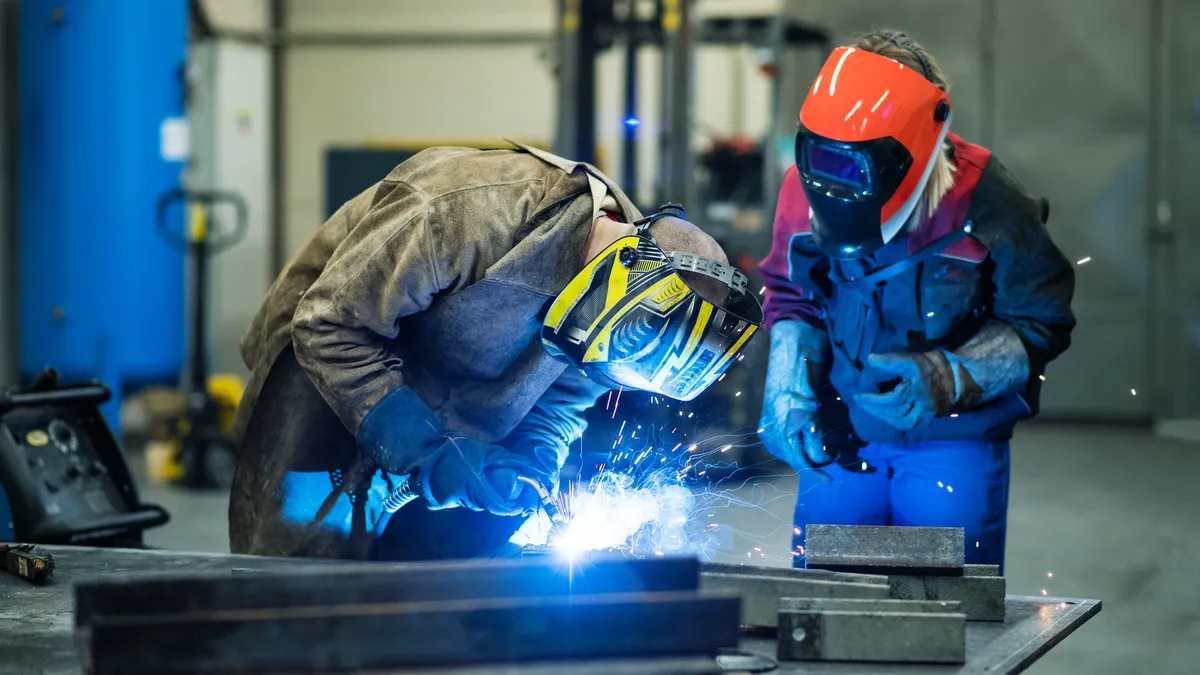With unemployment low and the economy thriving, retailers are experiencing challenges in hiring and retaining in-store employees, making it harder to meet demand even as consumer spending continues to rise.
As in many other industries, the talent market for retail is growing increasingly competitive. Because of rapidly evolving market conditions, employers are looking for candidates with a new set of skills; meanwhile, the pressure to hit revenue goals is unforgiving. Successful retailers are combating these challenges by rethinking the strategies behind brick-and-mortar presences and modernizing training.
Strategy change
Moving on from previously established norms, larger business-to-consumer companies are now focusing on creating memorable in-store experiences for customers. This can mean providing expertise from extremely knowledgeable reps, or product customization opportunities that only exist in stores. It also can mean a futuristic, tech-enabled buying experience.
While some projected an eventual demise of brick-and-mortar — and many brands are, in fact, shutting down locations, making lay-offs or failing altogether — other companies are finding success by repositioning brick-and-mortar from being the primary source of revenue to part of a sustainable 'omni-channel' strategy.
Best Buy CEO Corie Barry said her company's 12 consecutive quarters of growth show its "strength as a successful multi-channel retailer who can meet customers when and where they want," in an earnings release. "We offered compelling holiday deals that resonated with customers and provided a seamless shopping experience, great inventory availability and fast and free delivery."
While legacy retailers have had mixed results, newcomers that started off selling online, such as Warby Parker, are finding value in a physical presence.
Kevin Campos, partner at Fifth Wall, a venture capital firm investing heavily in helping e-commerce brands expand into brick-and-mortar, said in a recent statement that companies "simply cannot reach their full potential if they remain solely online."
This shifting formula for success has required an update to the skill sets retail managers are looking for.
Talent implications
Similar to other job pools in which employer competition is on the rise, retailers say there just aren't enough candidates for store positions who can check every box. One company has gone as far as implementing an open hiring process to overcome this problem.
In summers and during the holidays, this competition for talent gets even tighter. "Seasonal workers are applying to industries with high turnover and minimum wage," Keith Ryu, CEO and co-founder of Fountain told HR Dive via email. "This means companies are competing for the same, qualified candidates and offering the same benefits over and over again."
Among other things, some employers are hoping they can attract and retain store employees with expanded benefits such as healthcare and retirement savings, wages above state minimums, free or discounted GED and college courses, and development of transferable skills.
Because the cost of turnover is increasing for retail positions, employers are rethinking other aspects of work. High-quality onboarding and ongoing development programs, for example, can also offer a strategic advantage.
In-store workers need to be knowledgeable about products, but they also need to understand customers and the best way to meet their needs. Rather than counting on brand strength and product quality , retailers have an opportunity to empower store representatives as the first point of contact to prospective customers.
However, workers say their training misses the mark. Thirty-one percent of front-line retail employees in a recent Axonify survey said they do not receive any formal training. And 27% of employees who received training said it was ineffective due to being too boring and procedural.
"The classical way to train people in retail is [ILT], instructor-led training, face-to-face training in a classroom," Philippe Riveron, founder and CEO of Learning Tribes told HR Dive. "Twenty people in the same classroom, following the same path, even if they have different experiences." But that doesn't fulfill today's demands.
The 'augmented' customer representative
For the deskless workers of retail, mobile learning is a game changer.
Mobile capabilities have improved to offer retail workers a suite of resources akin to an enterprise learning management system, including curated training libraries, on-demand video tutorials, internal forums for sharing best practices and more.
"Mobile is a way to have the training in their pocket," Riveron said. Even though workers likely will have a face-to-face initial training, "a mobile approach can work to improve efficacy and continuously upskill employees," he said.
Shorter training sessions, delivered via mobile, can be ideal, as the Axonify study found the average person loses focus on training after 11 minutes. Over time, employees can build up a diverse skill set, allowing them to explain a wide range of products while navigating interpersonal interactions, for example.
"The store needs to be more and more an experience zone, where the customer representative needs to help the client to understand [the product]," Riveron said, adding that he believes training needs more emphasis on the "soft skills."
The evolution of the retail industry has necessitated an evolution of in-store roles. Workers must be capable of navigating complex conversations while also navigating technology tools to provide a high-caliber customer experience. Retailers that upgrade compensation and benefits for these positions while also rethinking training methods may find themselves in a strong position to compete in retail's new landscape.




















